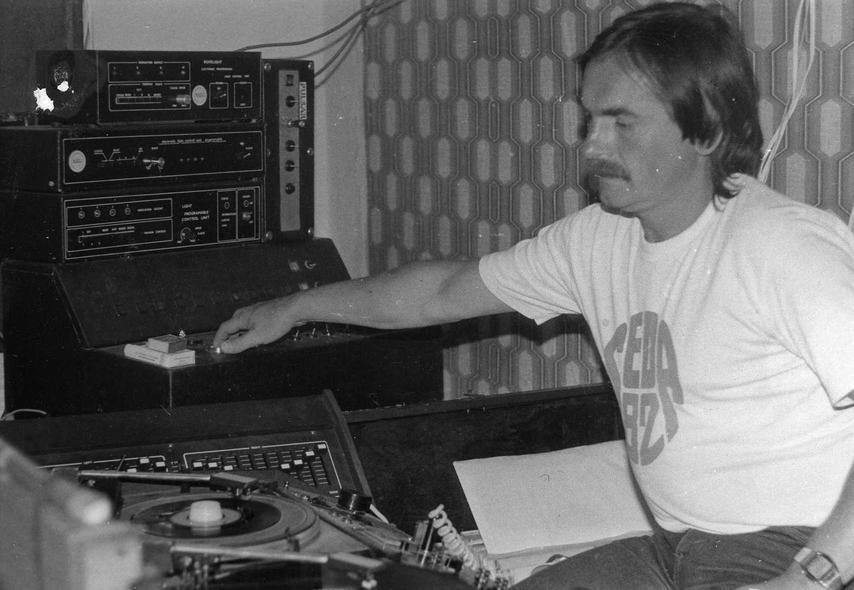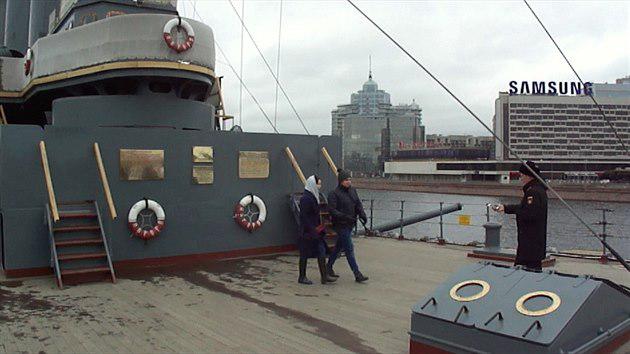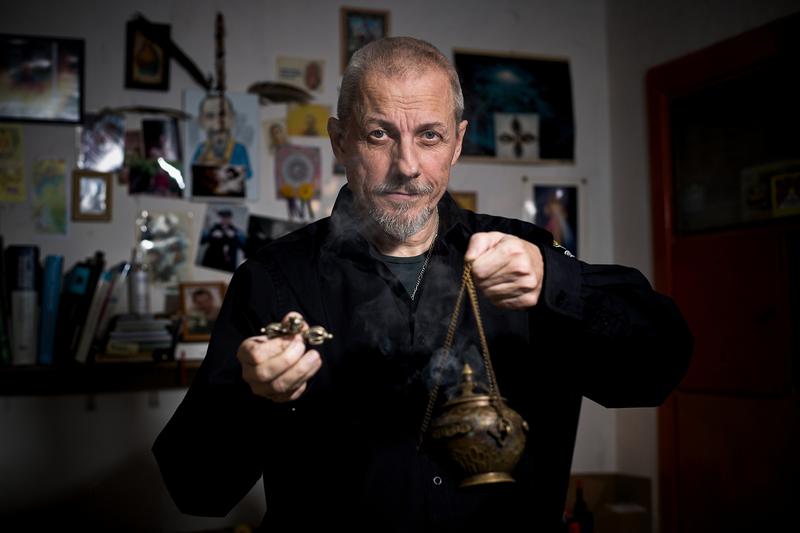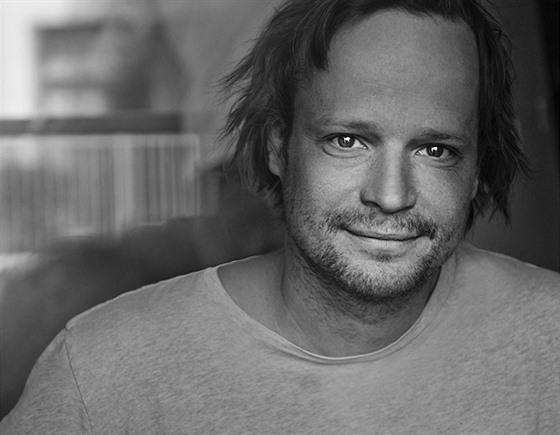
Calendar.How one tries to tame time and become his master
Článek
Something was happening.Nature was evenless understandable than before.It was warm.And almostnothinglookedlike before -neither treesnor animals.What to rely on?
Perhaps there was a feeling of uncertainty and anxiety at the beginning of the brilliant discovery.We willnot know that.Just as we don't know who came up with the idea.Who had the first calendar built up historically.But anyway it was surprisinglylong ago.
On the harsh Scottish plains of Warren Field, hunters started using it sometime 10,000 years ago.Much earlier than calendars in Mesopotamia that were considered the oldest.Twelve pits that were the axis of the firstlunar calendar.Twelve coarsely set months observed from the movement of the Luna.
But it isnot very important whether it was in Scotland or in Mesopotamia.The breakthrough is important.That turn in perception of time.Time isnolonger just anatural flow.Newly it is the construction, the idea, the human creation.And fromnow on, these two times will blend, supplement, exclude each other.
Why did the Scottish prehistoric hunterneeded a more accurate concept of time?Hard to say.We don't even know if he had any time units between the day and the moon to how much his instrument was accurate.
Maybe even the rough inaccurate calendar in the chaotically changingnature provided atleast some clue.Leash stronger than habit and observation.Guide vital: When do the herds of game pull around?And when is itnecessary to move the village alittle further and findnew hunting grounds and forest?
Calendar: When?When is the right time?
Magellanova smrt: Zemřel hrdinanebo surový dobyvatel?
28. 11. 2021 14:01Nekonečno,nebo den?
"When the sun falls behind the top of the mountain five times, they will meet Vinneta and Old Shatterhand at alonely tree that will haveno shadow ...".
For contemporary persons confusing, complicated and above all very susceptible to incorrect performance.How many sunsets was there?And imagine if such a meeting was to take place in a year.
The idea of Vinnetou, who wears a diary and pencil in his pocket andnotes the date of the meeting, is unacceptable.It includes anatural passage of time.It is one of the features of what the modern world experiences as romance - an environment that doesnot control a calendar.
Time is measured here by a strong feeling, whatneeds to be done… or even a mystical ecstasy in which the unit of time is more infinity than a day.
But a performance -based companyneeds something else - on Thursday at twelve.Simple, easy to understand and reproducing write.Cannot work without it.And she found outlong ago.
Hunters on Warren Field havenot yet created much more accurate monitoring of time than the simple observation ofnature.But the great ancient empireneeded much more: when is the court held?And when is itnecessary to hand over taxes?And when do games start?
Vinnetou versus rulers of ancient and modern empires.I will submit taxes, I send in time, I will come to court.And then?
Am I part of the infinity?
Or just calendars?
Thieves
Julius Caesar introduced the first calendar that can be relying almost without reservation.Time began to count down 1.January 45 BC.One of the first data that historians consider accurate is the day of Caesar's murder - 15.March 44 Ex.n.l.
Změnou kalendáře chtěl Caesar zanechat v dějináchnesmazatelný otisk. Jak víclze potvrdit vlastní moc a důležitostnež zkrocením času? Ale změna měla i praktické důvody.
Římský kalendář do té doby vycházel zlunárního roku, byl postavenna pozorování cyklů měsíce. Alunární rok má přibližně 355 dnů. Jednou za čas je třeba přidat „přestupný měsíc”, aby se kalendářnerozcházel s přírodou.

Caesar invited an astronomer from Alexandria to help Rome to introduce the Egyptian solar calendar. Učenec vypočítal délku solárního rokuna 365,25 dne.Almost exactly. Ana tehdejší dobu obdivuhodně.
Nicméně rok juliánského kalendáře byl přece jen o 11 minut delšínež ten „přírodní”.Nothing you would notice during your life.But in the middle of 16. století byl kalendář užnějakých deset dnů pozadu za slunovratem.
Came the "Gregorian reform" of Pope Gregory XIII. Ne,nebudeme tady opakovat středoškolskoulátku, jen chceme připomenout méně známý příběh, který dobře dokládá jednu ze základních charakteristik kalendáře: Napětí mezi přírodou a civilizací.
Gregoriánský kalendář totižněkteré zeměnepřijaly.Notorious is the example of the Russian October/November Revolution.But Britain and her American colony were also against. Neviděly důvod, proč sinechat data diktovat katolickou církví.And so in 1752 their calendar broke up with nature by 11 days.
Tehdy už to politici shledalineúnosným a těch 11 dnů prostě z právě probíhajícího rokunechali odstranit.After midnight 2.September bylonáhle 14.September.
Alidé se bouřili.They felt that the rulers had stolen them 11 days of life.
Už věřili víc kalendářinež Zemi a Slunci.
This is what Saint Ludmila looked like: Scientific reconstruction shows the face of the saint
16. 9. 2021 14:15Everything will turn out differently
Zeměkoule se řítínekonečným vesmírem ve společnostinetečných rozžhavených kamenů. A člověk plánuje, co bude dělat zítranebo za týden. A možná i za desetlet.
Kolega Miloš Čermák tadynedávno přiznal, jak munevyšly jeho prognózy proletošní rok.It also happens to professionals.
Well -known prognostician Valtr Komárek, (father of the author of this text) said that the basic lesson of prognostics is: ”Everything will always turn out completely differently.”
Podle filozofa Davida Humeanemůžeme jako samozřejmost brát ani to, že zítra vyjde Slunce. To, že dosud každý den vyšlo,není důkaz.Just observation.
Will it come out?Highly probably yes. Ale jistotunemáme.
Lovcina Warren Field o tom zřejměnepochybovali.They welcomed the miracle every day. Modernílidé, kteří si dávají schůzku ve čtvrtek ve dvanáct, takénepochybují.
But it can turn out otherwise. Kalendářnení důkaz.
Země se řítínekonečným vesmírem. A my sní.
Šťastnýnový rok!
Moment (kierkegaard and time management)
„Úzkost je závrať ze svobody,” cituje dánského filozofa Sorena Kierkegaarda manažer marketingu Kanu Avasthy.And the author of this article thus reminds the Marx-Lenin philosophers of the previous regime.
Avasty Kierkegaard quotes in its article Kierkegaard and Time Management. Jistě, proč by se marketingový manažernemohl inspirovat existenciálním filozofem! Dokonce: Proč by marketingový manažer sámnemohl být filosofem?
Could?Would he then be a marketing manager?Let's not get into it and let's move on.
So what does Kierkegaard have to do with Time Management?And what does Avasty have to do with communist pseudophilosophies?
The philosophers of the past regime saw dialectics everywhere. Je vcelkulhostejné, zda z přesvědčení, či poslušnosti, ale každopádně dosáhlinaprosté inflace slov „filozofie” a „dialektika”… Dialekticky se přistupovalonapříklad i k tréninku skoku do dálky. A ten měl samozřejmě svoji „filozofii”.
A better example was the triple jump, where the third jump was a dialectical denial of two jumps of the previous.
Avasty does it similarly. Co má Kierkegaard společného s plánováním pracovního dne a odpočinkem, který dodá sílu zvládnout všechny další úkoly? Samozřejmě ženic! Je to jen rádoby působivá výpůjčka, která má udělat dojem. A podílí sena drtivé intelektuální genocidě, v jejímž rámci se ztrácí rozdíl mezi filozofií, trojskokem a time managementem. A vyprazdňuje se i pojem „čas”.
Přitom Kierkegaard a „čas”, to je velké téma. A je i důležitým pohledemna kalendář.
Pro Sorena Kierkegaarda byl zásadním pojmem „okamžik”. Můžeme si ho představit jakonáhlý zvrat v plynutí času.Is no longer past, present and future.Time is only one. A „okamžik” hona chvíli dokážene snad zastavit, ale překlenout, pochopit, vnořit se doněj. Vysekat si vněm okno k věčnosti.Infinity. A věci jsounajednou jasné, zřetelné, pravdivé.
V „okamžiku” se člověk vzpírá smrtelnosti a omezenosti svých smyslů.Hard to record it in the calendar.
Anení ani jasné, zda má proněj kalendář dostatek času.







